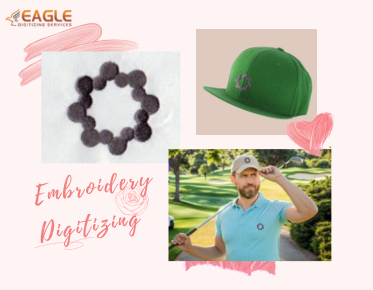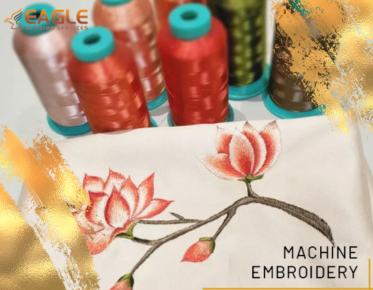6 Best Machine Embroidery Threads
Embroidery is an art that combines creativity with precision, and choosing the right thread is crucial for achieving the best results. Whether you're a professional embroiderer or a hobbyist, understanding the different types of machine embroidery threads can significantly impact your work. In this article, we will explore six of the best machine embroidery threads available today, each offering unique qualities that cater to various embroidery needs.
1. Rayon Embroidery Thread
Rayon embroidery thread is known for its vibrant sheen and smooth texture, making it a popular choice for decorative stitching. It is made from cellulose and is highly flexible, which allows it to glide through fabric with ease. This thread is ideal for intricate designs and is often used in high-end fashion embroidery. However, it is less durable than polyester threads and may not be suitable for items that require frequent washing.
2. Polyester Embroidery Thread
Polyester embroidery thread is renowned for its strength and durability. It is resistant to fading and can withstand frequent washing, making it perfect for garments and home textiles. This thread also offers a slight sheen, though not as pronounced as rayon. Polyester threads are available in a wide range of colors and are often used in commercial embroidery due to their resilience.
3. Cotton Embroidery Thread
Cotton embroidery thread is favored for its natural look and feel. It is less shiny than rayon or polyester, which makes it ideal for creating a more subdued, matte finish. Cotton threads are perfect for heirloom projects and traditional embroidery techniques. They are also available in various weights, allowing for different textures and effects in your designs.
4. Silk Embroidery Thread
Silk embroidery thread is the epitome of luxury in the embroidery world. It offers a natural sheen and a smooth finish that is unmatched by other thread types. Silk threads are perfect for delicate fabrics and intricate designs, providing a rich and elegant appearance. However, they are more expensive and require careful handling to avoid damage.
5. Metallic Embroidery Thread
Metallic embroidery thread adds a touch of sparkle and glamour to any project. It is made by wrapping a metallic foil around a core thread, which can be rayon, polyester, or nylon. This thread is perfect for festive designs and accents, though it can be challenging to work with due to its tendency to fray. Using a larger needle and reducing machine speed can help mitigate these issues.
6. Variegated Embroidery Thread
Variegated embroidery thread offers a unique color-changing effect, with multiple colors blended along the length of the thread. This creates a stunning visual impact, especially in large areas of stitching. Variegated threads are available in various fiber types, including cotton, polyester, and rayon, allowing for versatility in different projects.
Choosing the Right Thread for Your Project
When selecting embroidery threads, consider the fabric type, the intended use of the embroidered item, and the desired visual effect. For instance, polyester threads are excellent for items that require durability, while silk threads are best for luxury projects. Additionally, using high-quality threads can prevent issues such as thread breakage and uneven stitching.
Enhancing Your Embroidery with Professional Digitizing
For those looking to elevate their embroidery projects, professional digitizing services can be a game-changer. Companies like Eagle Digitizing offer top-notch embroidery digitizing services that ensure your designs are perfectly translated into stitch files. This service is particularly beneficial for complex designs and logos, providing a polished and professional finish.
Future Trends in Embroidery Threads
As technology advances, we can expect to see innovations in embroidery threads, such as eco-friendly options and smart threads that change color or texture. These developments will open new possibilities for creative expression in embroidery. Staying informed about these trends can help you stay ahead in the ever-evolving world of embroidery.
In conclusion, selecting the right embroidery thread is essential for achieving the desired outcome in your projects. By understanding the characteristics of different thread types and utilizing professional services like those offered by Eagle Digitizing, you can enhance the quality and appeal of your embroidery work. As the industry continues to evolve, embracing new trends and technologies will ensure that your embroidery remains at the forefront of creativity and innovation.


